-
 Bitcoin
Bitcoin $96,967.1185
-0.97% -
 Ethereum
Ethereum $2,671.8672
-2.29% -
 XRP
XRP $2.5695
-4.76% -
 Tether USDt
Tether USDt $1.0002
0.01% -
 BNB
BNB $645.6047
-1.25% -
 Solana
Solana $171.2167
-1.05% -
 USDC
USDC $1.0000
0.01% -
 Dogecoin
Dogecoin $0.2462
-2.20% -
 Cardano
Cardano $0.7733
-3.19% -
 TRON
TRON $0.2391
-2.12% -
 Chainlink
Chainlink $17.7376
-2.28% -
 Sui
Sui $3.3727
-1.65% -
 Avalanche
Avalanche $24.6569
-0.32% -
 Stellar
Stellar $0.3296
-5.06% -
 Litecoin
Litecoin $130.0046
2.52% -
 Toncoin
Toncoin $3.6504
1.46% -
 Shiba Inu
Shiba Inu $0.0...01532
-0.97% -
 UNUS SED LEO
UNUS SED LEO $9.6755
-0.52% -
 Hedera
Hedera $0.2125
-2.94% -
 Hyperliquid
Hyperliquid $24.8232
0.91% -
 Polkadot
Polkadot $5.1674
3.43% -
 MANTRA
MANTRA $7.5034
-0.01% -
 Bitcoin Cash
Bitcoin Cash $320.8281
-0.64% -
 Ethena USDe
Ethena USDe $0.9978
-0.18% -
 Bitget Token
Bitget Token $4.7462
4.95% -
 Uniswap
Uniswap $8.9431
-4.59% -
 Dai
Dai $0.9997
-0.07% -
 Monero
Monero $228.7110
-0.47% -
 NEAR Protocol
NEAR Protocol $3.3985
0.84% -
 Pepe
Pepe $0.0...09371
-0.86%
What are the benefits of running Ethereum full nodes?
Running a full Ethereum node enhances security and privacy by verifying transactions directly against the blockchain, ensuring the integrity of the network and protecting users' funds.
Feb 21, 2025 at 02:07 am

Key Points:
- Enhanced security and privacy
- Reduced reliance on third-party services
- Improved network contribution
- Potential earning opportunities through ETH staking and node validation
- Support for blockchain development and innovation
Benefits of Running Ethereum Full Nodes:
1. Enhanced Security and Privacy:
Running a full node is essential for maintaining the security and privacy of the Ethereum network by verifying every block and transaction in real-time. By checking each transaction against the blockchain, full nodes ensure that no malicious activity or double-spending occurs. This direct connection to the Ethereum network gives users complete control over their funds and protects them from potential fraud or hacks.
2. Reduced Reliance on Third-Party Services:
Full nodes eliminate the need for users to trust external entities or services for data integrity. By downloading the entire blockchain locally, each full node contains a complete record of every transaction ever made on the Ethereum network. This removes the risks associated with relying on third-party services, such as blockchain explorers or exchange platforms, which may have vulnerabilities or engage in data manipulation.
3. Improved Network Contribution:
Running a full node actively contributes to the resilience and decentralization of the Ethereum network. By hosting a copy of the blockchain, full nodes validate and propagate new blocks, helping to ensure the network remains secure and efficient. This participation strengthens the network's overall security and prevents malicious actors from disrupting its operations.
4. Potential Earning Opportunities:
Full node operators can participate in ETH staking and node validation services, which offer potential earning opportunities. ETH staking requires users to lock up a certain amount of ETH in a smart contract to support the network's security. In return, stakers earn rewards for validating transactions and creating new blocks. Additionally, full node operators can provide their services to other users, such as wallet providers or block explorers, and charge a fee for access to their blockchain data.
5. Support for Blockchain Development and Innovation:
Running a full node is crucial for developers and researchers who seek to contribute to the Ethereum ecosystem and innovate on its platform. Full nodes provide direct access to the underlying blockchain data, allowing developers to test and deploy smart contracts, create new applications, and conduct in-depth research on network behavior. By participating in the full node community, developers contribute to the advancement of Ethereum technology.
FAQs:
1. Who should consider running an Ethereum full node?
Anyone who values security, privacy, network contribution, or potential earning opportunities is encouraged to consider running an Ethereum full node.
2. What hardware requirements are necessary to run a full node?
Running a full node requires a computer with a solid-state drive (SSD) with at least 1TB of storage, at least 16GB of RAM, and a stable internet connection.
3. How long does it take to sync an Ethereum full node?
The time required to sync a full node varies depending on the internet speed and hardware used. However, it typically takes several days to download and verify the entire blockchain.
4. Can I run a full node on a Raspberry Pi?
Yes, it is possible to run a full node on a Raspberry Pi, but it will take significantly longer to sync due to its limited hardware capabilities.
5. What are the risks of running a full node?
There are minimal risks associated with running a full node, but it can be computationally intensive and require ongoing storage and bandwidth. Additionally, validators who participate in ETH staking face the risk of losing funds if their node is found to be misbehaving.
Disclaimer:info@kdj.com
The information provided is not trading advice. kdj.com does not assume any responsibility for any investments made based on the information provided in this article. Cryptocurrencies are highly volatile and it is highly recommended that you invest with caution after thorough research!
If you believe that the content used on this website infringes your copyright, please contact us immediately (info@kdj.com) and we will delete it promptly.
- Ethereum (ETH) vs. IntelMarkets (INTL): Can This New AI-Based Crypto Disrupt the ETH Price in Q2 2025?
- 2025-02-22 01:35:24
- Kanye West's YZY Token May Be Coming This Month, Polymarket Bettors Wager $11M
- 2025-02-22 01:35:24
- Ethereum (ETH) Price Shows Stronger Momentum Than Bitcoin (BTC)
- 2025-02-22 01:35:24
- Pi Network Crashes 50% After Mainnet Launch, Top Rivals to Consider
- 2025-02-22 01:35:24
- Bitcoin Pepe: The 'ETH Killer' Nobody Saw Coming
- 2025-02-22 01:35:24
- XRP May Have a New Catalyst That Could Push Its Price Higher Following the Ongoing Consolidation Phase
- 2025-02-22 01:35:24
Related knowledge
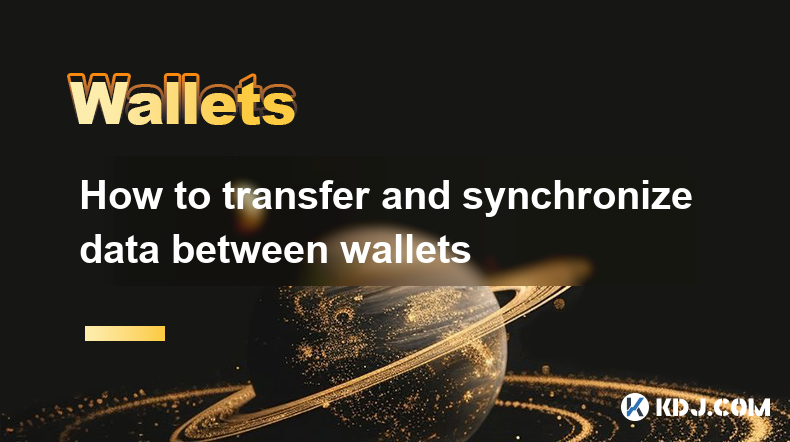
How to transfer and synchronize data between wallets
Feb 21,2025 at 12:25pm
Key Points:Understanding different wallet types and their capabilitiesIdentifying similarities and differences between walletsExploring options for transferring and synchronizing dataEnsuring data security and integrity during transferAddressing common challenges and troubleshooting tipsHow to Transfer and Synchronize Data Between Cryptocurrency Wallets...
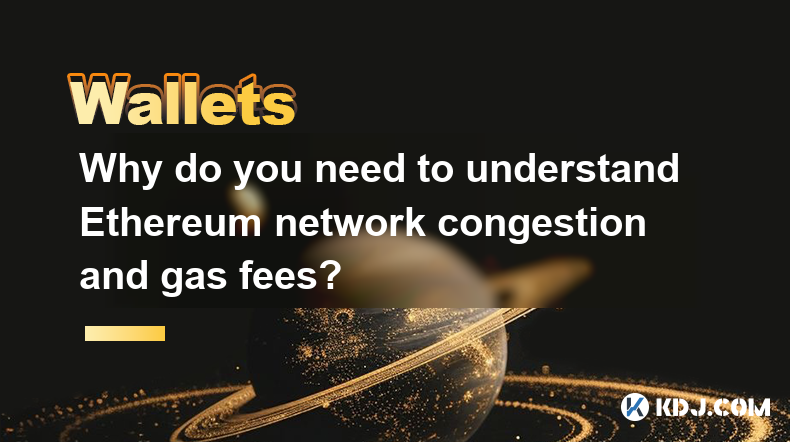
Why do you need to understand Ethereum network congestion and gas fees?
Feb 21,2025 at 04:48am
Key PointsUnderstanding Ethereum Network Congestion and Gas FeesGas Fees ExplainedFactors Affecting Network CongestionStrategies for Minimizing Gas FeesImpact of Ethereum UpgradesUnderstanding Ethereum Network Congestion and Gas FeesThe Ethereum network is a decentralized platform that hosts a vast ecosystem of decentralized applications (dApps), non-fu...
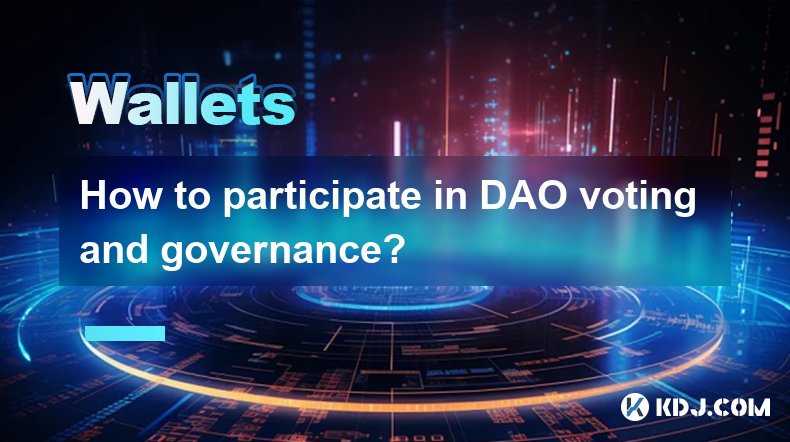
How to participate in DAO voting and governance?
Feb 21,2025 at 03:42pm
Key Points:Overview of DAO Voting and GovernanceUnderstanding DAO Structures and MembershipRole of DAO Tokens and Voting RightsParticipating in Voting and Proposal SubmissionLeveraging Governance Tools and PlatformsImpact of Voting Participation on DAO OutcomesBest Practices for Effective DAO GovernanceHow to Participate in DAO Voting and Governance1. U...
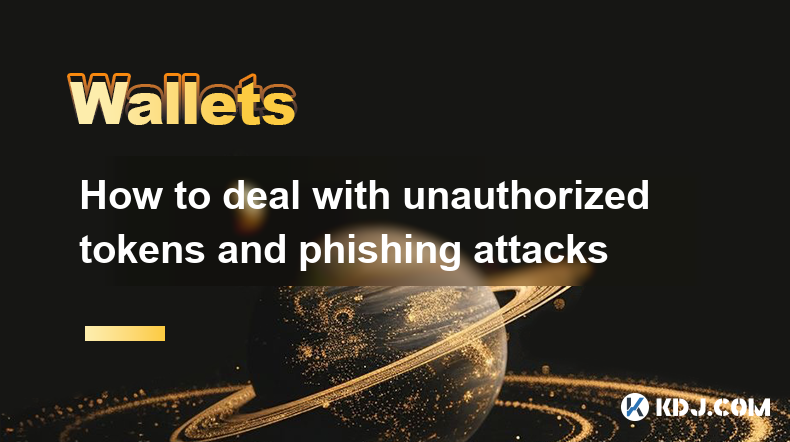
How to deal with unauthorized tokens and phishing attacks
Feb 21,2025 at 05:25am
Dealing with Unauthorized Tokens and Phishing Attacks in the Cryptocurrency CircleThe cryptocurrency market is rife with potential dangers, including unauthorized tokens and phishing attacks. To protect yourself from these threats, it's crucial to take proactive measures and be vigilant in your online activities.Key Points:Unauthorized Tokens: Tokens cr...
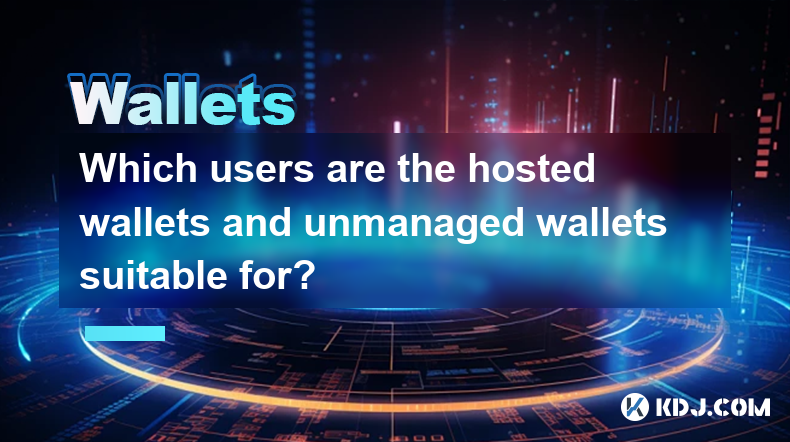
Which users are the hosted wallets and unmanaged wallets suitable for?
Feb 21,2025 at 12:00am
Key PointsDefinition and Characteristics of Hosted Wallets and Unmanaged WalletsAdvantages and Disadvantages of Hosted Wallets and Unmanaged WalletsDetermining Suitability for Hosted Wallets and Unmanaged WalletsExamples of Hosted Wallets and Unmanaged WalletsFrequently Asked Questions and AnswersHosted WalletsDefinition: A hosted wallet is a cryptocurr...
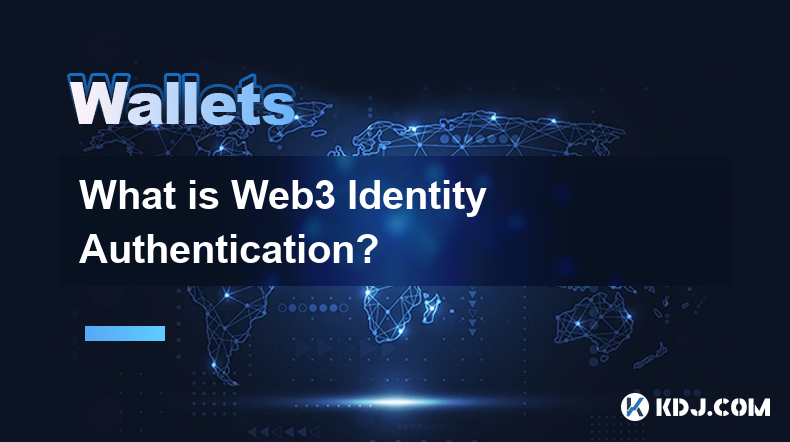
What is Web3 Identity Authentication?
Feb 21,2025 at 06:12am
Key Points:Web3 identity authentication revolutionizes online identity management.Decentralized Identifiers (DIDs) and Verifiable Credentials (VCs) provide secure and privacy-enhancing alternatives to traditional methods.Self-sovereign identity enables individuals to fully own and control their digital identities.Blockchain technology underpins Web3 ide...

How to transfer and synchronize data between wallets
Feb 21,2025 at 12:25pm
Key Points:Understanding different wallet types and their capabilitiesIdentifying similarities and differences between walletsExploring options for transferring and synchronizing dataEnsuring data security and integrity during transferAddressing common challenges and troubleshooting tipsHow to Transfer and Synchronize Data Between Cryptocurrency Wallets...

Why do you need to understand Ethereum network congestion and gas fees?
Feb 21,2025 at 04:48am
Key PointsUnderstanding Ethereum Network Congestion and Gas FeesGas Fees ExplainedFactors Affecting Network CongestionStrategies for Minimizing Gas FeesImpact of Ethereum UpgradesUnderstanding Ethereum Network Congestion and Gas FeesThe Ethereum network is a decentralized platform that hosts a vast ecosystem of decentralized applications (dApps), non-fu...

How to participate in DAO voting and governance?
Feb 21,2025 at 03:42pm
Key Points:Overview of DAO Voting and GovernanceUnderstanding DAO Structures and MembershipRole of DAO Tokens and Voting RightsParticipating in Voting and Proposal SubmissionLeveraging Governance Tools and PlatformsImpact of Voting Participation on DAO OutcomesBest Practices for Effective DAO GovernanceHow to Participate in DAO Voting and Governance1. U...

How to deal with unauthorized tokens and phishing attacks
Feb 21,2025 at 05:25am
Dealing with Unauthorized Tokens and Phishing Attacks in the Cryptocurrency CircleThe cryptocurrency market is rife with potential dangers, including unauthorized tokens and phishing attacks. To protect yourself from these threats, it's crucial to take proactive measures and be vigilant in your online activities.Key Points:Unauthorized Tokens: Tokens cr...

Which users are the hosted wallets and unmanaged wallets suitable for?
Feb 21,2025 at 12:00am
Key PointsDefinition and Characteristics of Hosted Wallets and Unmanaged WalletsAdvantages and Disadvantages of Hosted Wallets and Unmanaged WalletsDetermining Suitability for Hosted Wallets and Unmanaged WalletsExamples of Hosted Wallets and Unmanaged WalletsFrequently Asked Questions and AnswersHosted WalletsDefinition: A hosted wallet is a cryptocurr...

What is Web3 Identity Authentication?
Feb 21,2025 at 06:12am
Key Points:Web3 identity authentication revolutionizes online identity management.Decentralized Identifiers (DIDs) and Verifiable Credentials (VCs) provide secure and privacy-enhancing alternatives to traditional methods.Self-sovereign identity enables individuals to fully own and control their digital identities.Blockchain technology underpins Web3 ide...
See all articles





















































































